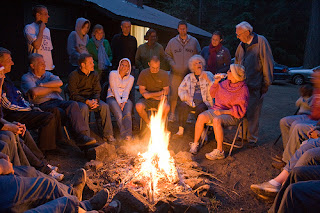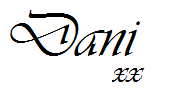Theatre Conversations
While I was reviewing and writing up the interviews I conducted, I found it interesting that many of the respondents had the same reaction to the relevance of theatre:
"All I can do is try to make something that feels relevant to me; that moves and excites me, and hope therefore that it does the same for others"
"I write about... something which fascinates me..."
"I bother because I love it, I care, I'm excited by the people I work with and what they, and we, have to say."
Does this mean that the act of creating theatre is something that is very personal? And does that make it selfish, or honest?
With one of my participants, we discussed, at length, how theatre has been around since the earliest times: the idea that the telling of stories is inherent in our nature, and that the theatre is simply a formalising of the cave and campfire. I found this comparison particularly lovely!
Image Source: blogs.egu.eu
Image Source: frontiers-of-anthropology.com
Believed to show figures holding hands around a central focal point (possibly a fire)
Another comment that I particularly liked was regarding my question as to why people may come to see a very relevant play? For example, there was a recent production that concerned a young couple moving into an area of London that was undergoing 'gentrification'. Many of the people who came to see the play would have either been directly or indirectly affected by the events depicted in this play, and I wondered why they would come to see something that they have already experienced?
The response from one participant was that by making the mundane into a play, it validates the experience of the individual, can make them feel that even the smallest events are deserving of being seen and heard, and that "if art imitates life, then it can make even the most seemingly insignificant life into art."





Hi Dani,
ReplyDeleteIt seems as if you are begging to discover something through your findings and make sense of everything!
I also love the reference to the campfire and caves - I have been studying the history of theatre again recently and it is interesting to see how it has developed and ultimately actors are people pretending to be something else and tell a story!
Your ideas and findings link to some of the information I have been reading up on the history of theatre - that people went to the theatre to see someone else express the feelings they may have inside them. Its an opportunity for them to look into something that is possibly very real to them. Theatre, right from its origins, and still today continues to explore current topics and themes and what is happening within stories can reflect what is happening in a playwrights life, or the wider world. So on the quote, 'art imitates life,' i feel its relevance.
Personally for me, I enjoy watching things that I can relate too - whether it be a positive or negative experience. Something British theatre has done, especially the playwright John Godber with his plays 'Bouncers' and 'Shakers' express real life Britain, granted in a somewhat comedic form. What I think makes it so popular is the fact that however stylised the performance is, the content is so relatable.
On another note, how are you putting your interviews and findings into the final reflection? It does state that appendices can be the blank observation or interview templates. I have recorded some of my interviews but it was with the consent that I would use it to write up my findings and then delete - so the recordings are not something I would submit.
Are you planning on just writing up the findings into the review, or will you submit the original interview data - if recorded down?
Thanks,
Sinead xx
Thanks for your comments, lovely! :)
DeleteAll of the participants that I interviewed requested anonymity so I have written up the transcripts verbatim from the interviews and deleted the original material. I have allocated pseudonyms to all of the participants and any quotes from them in my inquiry will be referred to as 'Participant A' etc. I may put extended quotes as appendices but still under the condition of anonymity.
xx